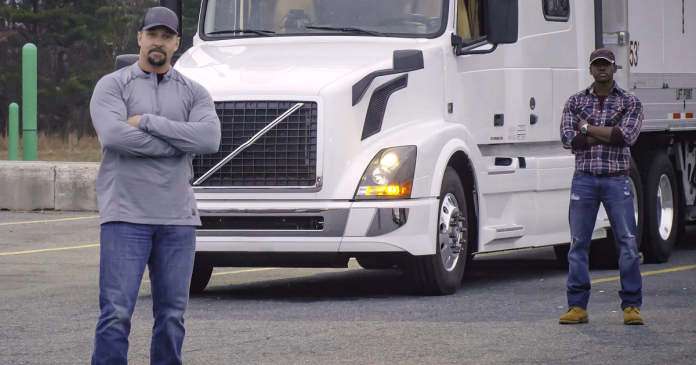In the demanding trucking industry, a decision by the United States 1st Circuit Court of Appeals has created significant ripples regarding the remuneration of team truck drivers. This ruling mandates that these professionals should be compensated for time spent in the sleeper cab beyond eight hours of sleep, in line with federal minimum wage laws. This legislative evolution marks a major shift in acknowledging the unique work conditions of these drivers.
The case, initiated by drivers from the CRST company, sheds light on an often-overlooked reality: despite not being behind the wheel, drivers resting in the sleeper cab are actively engaged in the transport operation. By being ready to take over driving after their teammate’s shift and responding to any urgent or necessary situations, they play a pivotal role. This operational model ensures the continuous movement of the vehicle, reducing downtime and optimizing delivery schedules. This raises questions about whether their role is sufficiently recognized and compensated, and whether the wages truly reflect the significance of this critical role in team trucking.
The court’s decision declared that time spent in the sleeper cab should be counted as ‘on-duty’ after eight hours of sleep, as per Department of Labor regulations. Without this additional compensation, driver wages were falling below the federal minimum wage of $7.25 per hour. The judgment emphasizes the need to reevaluate the remuneration of truck drivers, who often face challenging conditions and unique job constraints.
Moreover, the appellate court’s decision clarifies that being in the sleeper cab is not equivalent to free time. The Supreme Court, interpreting the Fair Labor Standards Act, defines work as any activity, physical or mental, required or controlled by the employer, mainly benefiting the employer. In this vein, the court dismissed CRST’s argument that a driver in the sleeper cab was merely “waiting to be engaged”.
The court noted that leisure activities in the sleeper cab are greatly limited by the confined space and the conditions of the moving truck, potentially disrupting sleep. This observation underscores the challenges and sacrifices inherent in team trucking and brings into focus the complexities of their daily lives, as well as the need to fully recognize their vital contribution to the trucking industry.
The recent case and the court’s decision prompt reflection on certain aspects of team trucking that might have been long neglected. These professionals constantly face road hazards and dangers. This ongoing exposure, even outside active driving hours, poses an essential question: should this continuous risk exposure be acknowledged and compensated as an integral part of their work? The ever-present road risk, even during rest periods, creates a unique situation for truckers. This extends beyond mere driving duties: truckers are effectively on duty from the moment they board the truck, regardless of their activity. This reality warrants consideration when contemplating the nature of their work. The judgment highlights this often-ignored aspect of the profession, stressing the need to recognize and fairly compensate all aspects of their professional commitment.
The decision to work in teams, often driven by a passion for trucking and promoted as such, leads to a critical inquiry: does this personal choice imply an acceptance of risks? Should the passion for trucking overshadow the need for equitable compensation for all job facets, including rest periods in the sleeper cab and exposure to road hazards? Some truckers argue for a risk premium for this type of long-haul trucking.
This debate is notably relevant in Canada, where truckers often enjoy better working conditions than in the United States, including a higher minimum wage. The question arises whether this improved remuneration in Canada, varying by company and province, reflects a more just recognition of the profession’s risks and constraints or is merely a result of economic and regulatory differences.
This debate in the United States could influence the practices and perceptions in the trucking industry in Canada and elsewhere, illuminating the need to balance passion with safety, dedication with fair risk recognition.
















